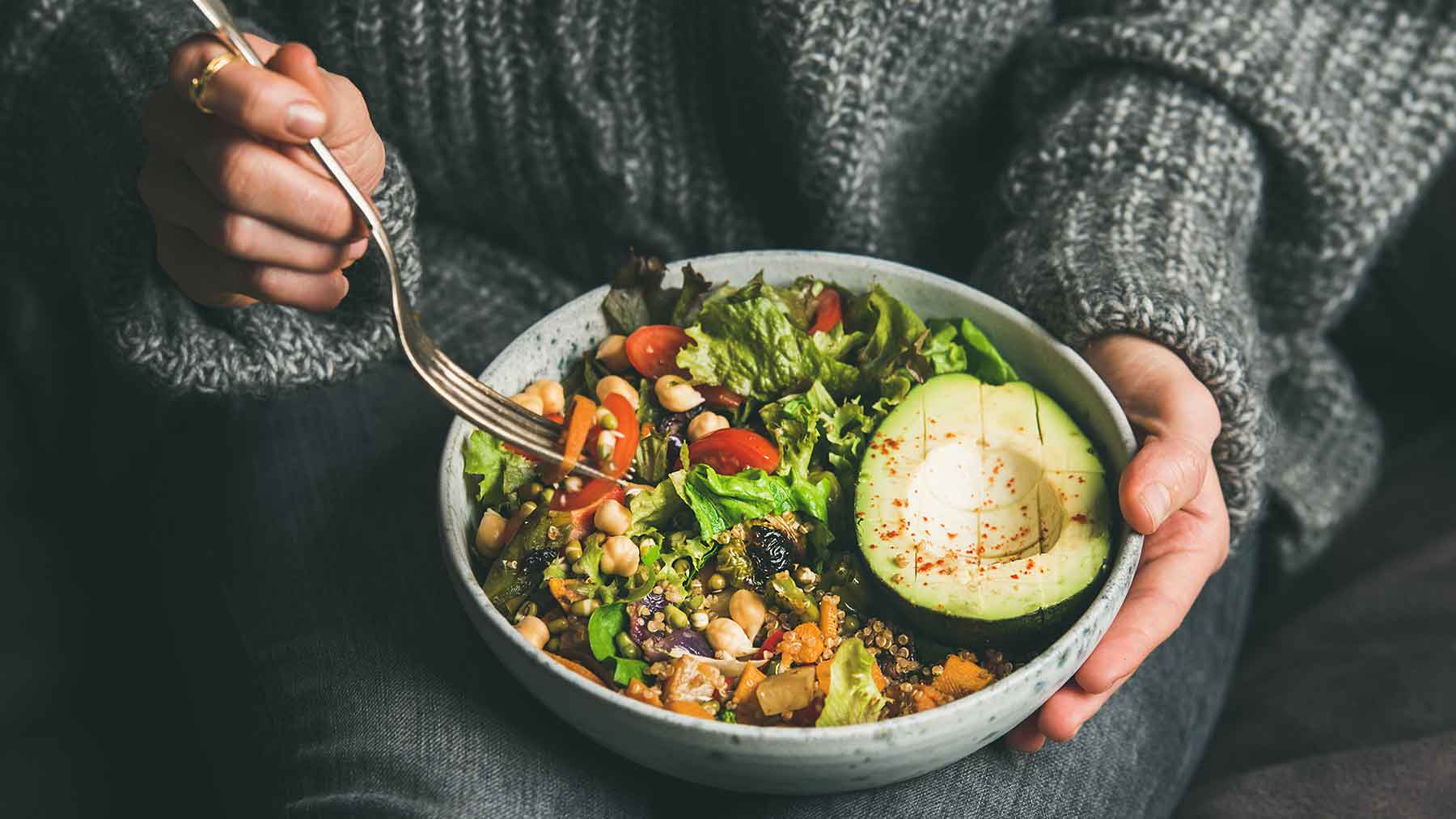What’s the best diet for inflammatory bowel disease?

As a registered dietitian nutritionist, I work with many patients who have inflammatory bowel disease (IBD), a chronic inflammatory disease of the intestines that includes Crohn’s disease and ulcerative colitis.
Each person with IBD is different and can have varying levels of disease activity, including inflammation, ulceration, narrowing of the bowels and even fistulas (abnormal connections between body parts). Some patients experience abdominal pain, bloating, gas, diarrhea and nausea. Typically, patients with active disease or flare-ups have more gastrointestinal symptoms. Many have had surgical procedures to treat their IBD and some patients—not all—manage it with medications.
All IBD patients would benefit from meeting with a registered dietitian after their diagnosis in order to determine the best diet to control symptoms, support immunity, and promote healing and good energy levels.
Best diet for inflammatory bowel disease
For many of my patients, specifically those with mild IBD or who are in remission, I encourage the nutrient-dense Mediterranean diet. This dietary pattern promotes the intake of vegetables, fruits, whole grains, beans, lean proteins and healthy fats rich in omega-3 fatty acids. You should work towards minimizing processed foods containing additives and artificial ingredients, and limit red meat, processed meats, sweets and added sugars.
I recommend this diet for two primary reasons. First, it’s full of prebiotic fibers from sources such as vegetables, fruits, whole grains, legumes, nuts and seeds. These help to feed the beneficial microorganisms in your gut, known as the microbiome. We’ve learned that a healthy and diverse microbiome is important to maintain the lining of the intestines. These beneficial organisms also play a role in immune function and vitamin and mineral metabolism. We’re just starting to understand the microbiome’s role in disease development and conditions like IBD.
The second reason I recommend the Mediterranean diet is that it’s full of foods rich in phytonutrients and omega-3 fatty acids, which may decrease the inflammation that’s at the heart of IBD. The diet is also low in added sugars. Too much sugar promotes the growth of bad bacteria, which can negatively affect the health of the intestines and the function of the microbiome. For some people, added sugar can worsen symptoms and cause abdominal cramping and diarrhea.
There’s great variety in the Mediterranean diet with the vast geography and variations among countries. A good guideline for moving toward this way of eating is the arrangement of the plate for meals. I recommend that half the plate be non-starchy vegetables—broccoli, tomatoes, leafy greens—and the other half of the plate should be split between starchy vegetables or whole grains, like barley, quinoa or brown rice, and the remaining forth of the plate be a lean protein like fish, seafood, poultry or beans. Fruit can be incorporated into the meal as a dessert or a snack between meals. I encourage cooking with extra virgin olive oil instead of butter or margarine, and consuming non-fat or low-fat dairy.
I remind my patients that eating red meats such as beef, pork and lamb, along with processed meats, may increase their risk for colorectal cancer. Patients with IBD already have an increased risk of colorectal cancer. The Mediterranean diet is associated with a lower risk of cardiovascular disease, obesity, diabetes and some cancers.
This diet can be modified to enhance digestion and absorption to minimize gastrointestinal symptoms and micronutrient deficiencies, which can be common in those with more active IBD. Because active disease can affect nutrient absorption and lead to symptoms that result in decreased food intake, malnutrition is another common experience of IBD patients. Adequate hydration is also critical, especially for patients that experience frequent diarrhea. I’ll often recommend oral rehydration solutions, including Pedialyte, diluted juices mixed with salt and chicken broth with small amounts of added sugar and salt. Salt in combination with small amounts of sugar can aid in hydration and replace lost electrolytes.
Elimination diets
Some patients ask me about elimination diets with hopes of decreasing symptoms or putting their IBD in remission. I don’t often recommend these, but will consider an elimination diet based on the person. There are so many considerations, from your nutritional status, your preferences, beliefs, nutrient deficiencies, readiness, as well as feasibility and ability to maintain appropriate vitamin and mineral intake. For a patient already at risk for malnutrition, a strict elimination diet isn’t always practical and could lead to poor outcomes.
Occasionally, I’ll see a patient with active gastrointestinal symptoms like cramping, nausea, bloating, gas, diarrhea and/or constipation, but no active inflammatory disease. These patients may have been diagnosed with irritable bowel syndrome (IBS). In some cases, we may try what’s known as a low FODMAP diet (fermentable oligosaccharides, disaccharides, monosaccharides and polyols). This diet eliminates short-chain carbohydrates that are often mal-absorbed in the small intestine and cause symptoms in those with IBS. This is a short-term learning diet, ranging from just two to six weeks. If it provides relief from symptoms, foods are reintroduced systematically in an effort to pinpoint the problematic food(s).
While studies have shown symptom improvement, the effect of the low FODMAP diet on inflammation is unknown. In other words, you might feel better for a period of time, but you’re not curing the disease. I recommend follow-up with a registered dietitian nutritionist before trying any sort of elimination diet to provide careful planning and support to prevent nutrient deficiencies and malnutrition, especially for patients with IBD.
Most studies that evaluate the effects of diet on patients with IBD have been observational. There is a study going on right now at Ohio State to help evaluate the benefits of the Mediterranean diet. We’re looking forward to learning if this truly is a dietary pattern that aids in healing and reduces disease risk.
Olivia Vaughn is a registered dietitian nutritionist in the Division of Gastroenterology, Hepatology and Nutrition at The Ohio State University Wexner Medical Center




